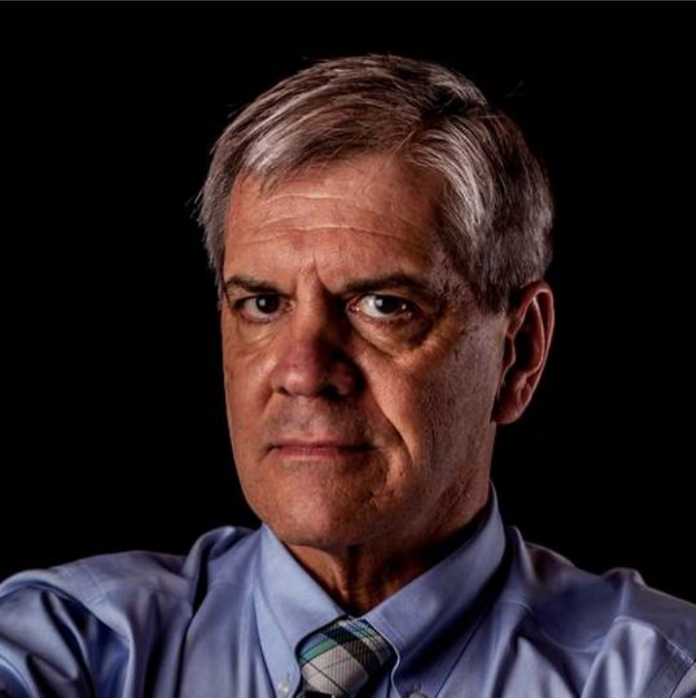New Jersey has battled against many negative taglines for the past couple decades, some warranted and others not… “The Soprano State”, “Armpit of The Nation”, “Worst State for Business”, “Worst Place to Die”, “Most Expensive State”, etc. Regardless of the bad rap, one sector the Garden State has routinely excelled at is education. There may be no better example than The College of New Jersey (TCNJ), formerly known as Trenton State College. Their School of Business was recently ranked #44 in the nation by Poets&Quants, the second consecutive year in the top 50. I had the opportunity to interview the school’s Dean, Dr. William Keep, on the public’s most pressing questions.
One of the great fears of NJ educators is the potential flight of talent, especially young talent. A native of Michigan, Dr. Keep struggles with this idea, citing, “NJ’s vibrant communities, miles of great beaches, excellent rural areas, all within easy travel distance to NYC, Philadelphia, Baltimore, and D.C.” However, the National Low-Income Housing Coalition says tenants need to make $27.31 an hour (approximately $54,620 salary) in order to afford a two-bedroom apartment in NJ, the 7th highest in the country. This reality forces many NJ Millennials to continue living with Mom and Dad, or relocate. The silver lining here is that NJ also has the 7th highest mean income in the nation; TCNJ Business grads average starting salaries at about $56k. Nevertheless, according to the New Jersey Business and Industry Association (NJBIA), Jersey ranks last in the nation for net outgoing migration of Millennials- 22,000 in 2015. By comparison, Pennsylvania gained 19,000 Millennials in the same year. With 95% of TCNJ students hailing from NJ, Dr. Keep still points to “… a diverse industry base with pharma, financial services, technology, healthcare, hospitality, manufacturing, and more”, as reason for NJ-based employers to continue being the primary source of jobs for graduates.
The current state of affairs has prompted high schoolers and their parents to put the cost-value correlation of higher education under the microscope. The son of a potato chip salesman, Dr. Keep warns against belittling college, “We seem enamored with the atypical story- the founder of Microsoft, Twitter, or Facebook; even successful investors like Peter Thiel advising high school students to forego college. This advice is, in my opinion, ahistorical, narrow, ill-informed, and causes more harm than good.” Decades of data support that the average lifetime earnings rise with education. The rags-to-riches entrepreneur may garner all the headlines, but most small business owners hold a college degree and some work experience. “Any young person’s best bet is to get an education. If they want to expand on entrepreneurial interests at the same time, more the better. College should not be a time-out from personal growth and accountability, but rather an extension of real-world responsibilities to mature intellectually.”
The Cost of College
As student loan debt has soared past the previously highest debt burden, credit cards, admissions counselors are scrambling for answers. “The rising cost of higher education AND healthcare are, together, absorbing an inordinate amount of economic resources. From the mid-1980s to the Great Recession, the market for selling higher education was much more generous to sellers than to buyers.” With ten years of college education, nine while married with a young family, Dr. Keep welcomes, “…students and families becoming better consumers, doing their homework, and seeking good “value” for their higher education dollar.”
In response to affordability, the PhD in Marketing touts, “… creative offerings such as summer courses online, weekend courses for working students, etc. Not every college has to offer every choice but if state and federal legislators care about the cost of education, then higher education within each state should be designed to address these needs. By in large, that does not happen.”
Along the lines of cost, more “Super Seniors” are turning a four-year college experience into a five-year plan, and perhaps adding a Master’s Degree at the end. Dr. Keep cautions expecting too much from an 18-year old, but realizes that, “… Exploring career paths and future possibilities can be wonderful, uncertain, somewhat scary, and tremendously rewarding. To get the most of that a student needs a flexible plan, a bit of discipline, and the encouragement to make their own choices.” He recommends a college student revisit their overall plan at least twice per school year. Research shows schools with higher graduation rates, like TCNJ, work hard towards a four-year completion.
So Many Degrees and So Little Time
There has been much talk around the buzzword “STEM” (Science, Technology, Engineering, and Mathematics). “Nationally these types of incentives and related investments in economically necessary areas tend to quickly get political. I think the same way about investing in physical infrastructure such as roads, highways, subways, airports, and railroads. I would give us a grade of “C-” when it comes to investing in infrastructure so I am not hopeful of any sort of long term investment in economically necessary areas such as STEM,” the former congressional staffer admits.
As TCNJ researched their new MBA program, they discovered that most employers prefer some work experience prior to a graduate degree. Therefore, TCNJ’s new program will require two to three years of work experience before starting an MBA. Some schools still maintain a specialized one-year Masters to compliment an undergrad degree (i.e. a Math major picking up a Masters in Finance, or Psychology major obtaining a Masters in Human Resources).
Communiversities have become a panacea to some confused on where to head for college. A big fan of this link between community colleges and four-year colleges, Dr. Keep remembers, “My first college experience after serving in the Coast Guard was taking classes at my local community college. The first course I taught before getting my PhD was also at that same community college.” He wants to erase any stigma around Community Colleges, “Part of the issue is that an “open enrolment” policy may give the impression that community college courses must necessarily be easier to accommodate the less prepared student. This certainly does not have to be the case. Efforts to help less prepared students can exist in parallel with courses that have rigor and prepare students for four-year degrees.”
Another delivery mechanism taking hold is online education. This has proven particularly effective with older, more mature, adult learners. Dr. Keep seems to prefer the self-confidence and critical thinking skills developed by a face-to-face professor as opposed to the high dropout rates found in MOOC’s (Massive Open Online Courses), but embraces a place for blended education (some in-person and some online). “In my view, we do not ask enough about the cost of the residential college experience. It is not unusual for half the cost of an undergraduate degree to go for room and board. Online and blended courses may well increase the number of non-residential commuter students, reducing those costs.”
The debate on college degrees becoming Mom and Dad’s high school diploma, and the corresponding costs, is sure to rage on. As Rutgers’ Head Football Coach, Chris Ash, makes $2 million per year, nearly triple the school’s President, students and their families will continue to question where each tuition bill truly goes. Perhaps this momentum of critical thinking is just what New Jersey, and the rest of the nation, needs to advance higher education.
Dr. Keep’s Advice to Millennials
- Start a career where every morning (or, almost every morning) you look forward to going to work.
- Never assume the job will always be there or always be the same.
- Learn as much as you can along the way.
- Don’t make the mistake of choosing the risk that comes with avoiding change over the risk that comes with embracing change.
- Don’t just become financially literate, lead conversations with friends and family on understanding credit, investing, budgeting, etc.
- Never spend more than you make.
- Give a bit to charity.
- Save as much as you can.
- Then invest thoughtfully.
Hundreds of Business Opportunities – Visit the Home Business EXPO
Find a Home-Based Business to Start-Up >>> Hundreds of Business Listings.

















































